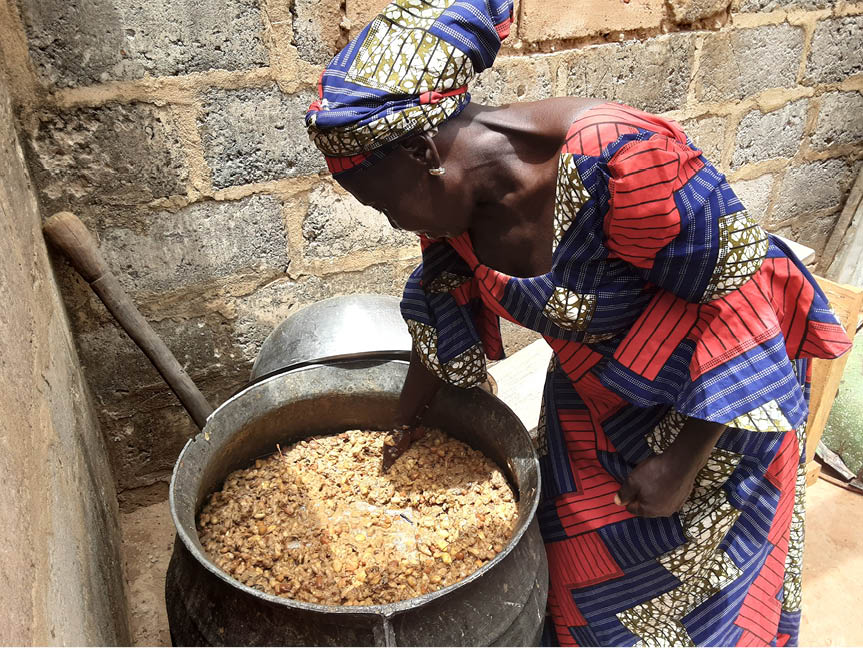Neem is a tree that grows in tropical regions like Nigeria. It is widely found in northern Nigeria with millions of trees planted across Borno, Katsina, Yobe, Adamawa, Zamfara, Kebbi, Sokoto, Niger and Nasarawa states to control desertification.
The leaves and seeds are used to make medicine and oil for treating a wide range of sicknesses, pests and other maladies.
- Wanted Abia major drug supplier arrested with 100kg cocaine, cannabis
- Jonathan 2015 defeat: Group exonerates Adamu Muazu, tackles ex-Niger gov
According to Healthline, the largest health information property in the U.S, “Neem oil has a wide history of use as a folk remedy around the world and has been used to treat many conditions. Although it has a harsh odour, it’s high in fatty acids and other nutrients, and it’s used in a variety of beauty products like skin creams, body lotions, hair products and cosmetics.”
It says the oil has been used in beauty regimens and skincare to treat dry skin and wrinkles, stimulate collagen production, reduce scars, heal wounds, treat acne and minimise warts and moles including eczema.
According to the National Pesticide Information Center of Oregon State University Extension Services, “Neem oil is a naturally occurring pesticide found in seeds from the neem tree. It is yellow to brown, has a bitter taste, and a garlic/sulfur smell. It has been used for hundreds of years to control pests and diseases.
“Components of neem oil can be found in many products today. These include toothpaste, cosmetics, soaps and pet shampoos. Neem oil is a mixture of components. Azadirachtin is the most active component for repelling and killing pests and can be extracted from neem oil. The portion left over is called clarified hydrophobic neem oil.”
In Nasarawa State, some women are beginning to see income opportunities in the neem oil, which is very expensive as a 75cl bottle goes for N4000 in Lafia and the demand outweighs the supply.
This reporter caught up with some of these women in Tudun Adabu in Obi, Nasarawa State, who are increasing their income to help their families.
Mrs Victoria Akolo Alkali said producing neem oil helps her support her children as she is the breadwinner of the family.
The widow said with the current economic hardship and demand for the oil, she and other women in the village decided to tap into the opportunity to improve their earnings.
Mrs Alkali said she sold a 50cl bottle, which fetches as much as N4000 each and the demand is increasing in the state because, according to her, many people have found it to be very effective against many diseases.
Another woman, 37-year-old Ramatu Bako, produces the oil which she sells to support herself and her four children.
“I do these to support the family income. It is not easy with us in the village but with the neem oil, we earn something useful for ourselves,” she said.
The reporter also met some women in the village who “instead of staying idle” as one of them puts it, decided to be busy with “something” that they can do to help them solve their financial needs.”
A woman, who simply described herself as the wife of a clergyman with the ERCC Church in the village, said many women are now turning to neem trees to lessen the economic burden that is weighing down many families.

And the more a woman is committed to it, the more money she makes for herself, she said.
“I wish I live in a place where the neem trees are in abundance, I will not have any problem. But here, many women are into it and the trees are not many,” Mrs Bako said.
How they make neem oil
The women first collect (through sweeping) the seeds, which when they are ripe drop from the neem trees around their areas. The seeds are collected into a container and soaked in the water for a few days. Thereafter the flesh is squeezed out leaving the seed kernel.
The seeds are then dried for some days. After that, the women crush the kernel to remove the seed inside. They do this process manually using bottles or other tools.
The seeds are then ground using small diesel-powered engines and the pulp or mash is then manually squeezed with little water added to extract the oil.
An emerging opportunity
With the demand for organic products growing around the world, more people appear to be turning to safer products that have fewer or no artificial chemical additives in them.
With millions of neem trees spread across the northern states for controlling desertification, the value chain development will help many low-income earners in the region to increase their wealth.
As neem tree presents another opportunity for the economic benefit of the vulnerable poor, it’s also time for more research into the potential of the tree which has been used in orthodox medicine in many climes for ages.
States and local governments can empower women in their domain to tap into the value chain to reduce poverty and help them remain business.

 Join Daily Trust WhatsApp Community For Quick Access To News and Happenings Around You.
Join Daily Trust WhatsApp Community For Quick Access To News and Happenings Around You.


